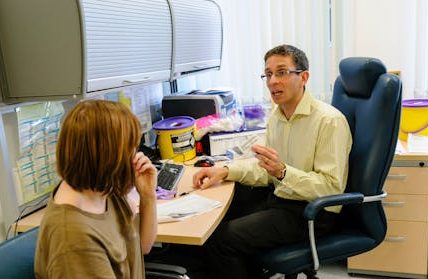Five things I wish everyone knew about weight loss – by an expert in nutrition
Weight loss continues to dominate public discourse – often framed as a matter of personal responsibility. But after nearly 15 years working in and around health and nutrition research, I’ve seen how weight is treated differently from almost every other health issue.
People are routinely blamed for their body size, even though robust evidence shows that weight is shaped by a complex mix of genetics, biology, environment and socioeconomic factors. Limited access to affordable healthy food, lack of safe places to exercise, long working hours and chronic stress – all more common in disadvantaged areas – can make maintaining a healthy weight significantly harder.
Here are five things I wish more people understood about weight loss.
1. It goes against our biology
Obesity has been recognised as a national health priority in England since the 1990s, with numerous policies introduced in response. Yet obesity rates have not declined. This suggests that current approaches, which tend to focus on personal responsibility, are not working.
Even when weight loss methods are successful, the results often don’t last. Research shows that most people who lose weight eventually regain it, and the chances of someone with obesity reaching and maintaining a “normal” body weight are very low.
That’s partly because our bodies fight back when we lose weight – a response rooted in our evolutionary past. This process is called metabolic adaptation: when we reduce our energy intake and lose weight, our metabolism slows, and hunger hormones like ghrelin increase, encouraging us to eat more and regain the lost weight.
This biological response made sense in our hunter-gatherer past, when feast and famine were common. But today, in a world where high-calorie, ultra-processed food is cheap and accessible, these same survival traits make it easy to gain weight – and difficult to lose it.
So if you’ve struggled to lose weight or keep it off, it’s not a personal failure – it’s a predictable physiological response.
2. It’s not about willpower
Some people seem to maintain a stable weight with relative ease, while others struggle. The difference isn’t just about willpower.
Body weight is influenced by a host of factors. Genetics play a major role – for example, affecting how quickly we burn calories, how hungry we feel, or how full we get after eating. Some people are genetically predisposed to feel hungrier or crave high-energy foods, making weight loss even more challenging.
Read more:
Obesity care: why “eat less, move more” advice is failing
Environmental and social factors also play a part. Having the time, money, or support to prepare healthy meals, be active, and prioritise sleep makes a real difference – and not everyone has those resources.
When we overlook these complexities and assume weight is purely a matter of self-control, we contribute to stigma. This stigma can make people feel judged, ashamed, or excluded, which ironically can increase stress, reduce self-esteem, and make healthy habits even harder to adopt.
3. Calories aren’t the whole story
Counting calories is often the default weight loss strategy. And while creating a calorie deficit is essential for weight loss in theory, in practice it’s far more complicated.
For starters, calorie labels on foods are just estimates, and our own energy needs vary from day to day. Even how much energy we absorb from food can differ based on how it’s cooked, how it’s digested, and the makeup of our gut bacteria.
There’s also the persistent idea that “a calorie is just a calorie” – but our bodies don’t treat all calories the same. A biscuit and a boiled egg might contain similar calories, but they affect our hunger, digestion, and energy levels very differently. A biscuit may cause a quick blood sugar spike and crash, while an egg provides longer-lasting satiety (fullness) and nutritional value.
These misunderstandings have fuelled the rise of fad diets – like only drinking shakes or cutting out entire food groups. While they can lead to short-term weight loss by creating a calorie deficit, they’re rarely sustainable and often lack essential nutrients.
A more realistic and balanced approach is to focus on long-term changes: eating more whole foods, reducing takeaway meals, cutting back on alcohol and building habits that support overall wellbeing.
4. Exercise is great for your health – but not necessarily for weight loss
Many people assume that the more they exercise, the more weight they’ll lose. But the science tells a more complex story.
Our bodies are very good at conserving energy. After a tough workout, we may unconsciously move less for the rest of the day, or feel hungrier and eat more – offsetting the calories burned.
In fact, research shows that total daily energy expenditure doesn’t keep rising with more exercise. Instead, the body adjusts by becoming more efficient and reducing energy use elsewhere, making weight loss through exercise alone more difficult than many expect.
That said, exercise still offers a huge range of benefits: it boosts cardiovascular health, improves mental wellbeing, maintains muscle mass, enhances metabolic function, strengthens bones and lowers the risk of chronic diseases.
Even if the number on the scale doesn’t change, exercise is still one of the most powerful tools we have to improve health and quality of life.
5. Health improvements don’t always require weight loss
You don’t have to lose weight to get healthier.
While intentional weight loss can reduce the risk of conditions like heart disease and some cancers, studies also show that improving your diet and being more active can significantly improve health markers – like cholesterol, blood pressure, blood sugar and insulin sensitivity – even if your weight stays the same.
Read more:
Why you can’t judge health by weight alone
So if you’re not seeing big changes on the scales, it may be more helpful to shift your focus. Instead of chasing a number, focus on behaviour: nourishing your body, moving regularly in ways you enjoy, sleeping well and managing stress.
Weight is just one piece of the puzzle – and health is about so much more.
Rachel Woods does not work for, consult, own shares in or receive funding from any company or organisation that would benefit from this article, and has disclosed no relevant affiliations beyond their academic appointment.


